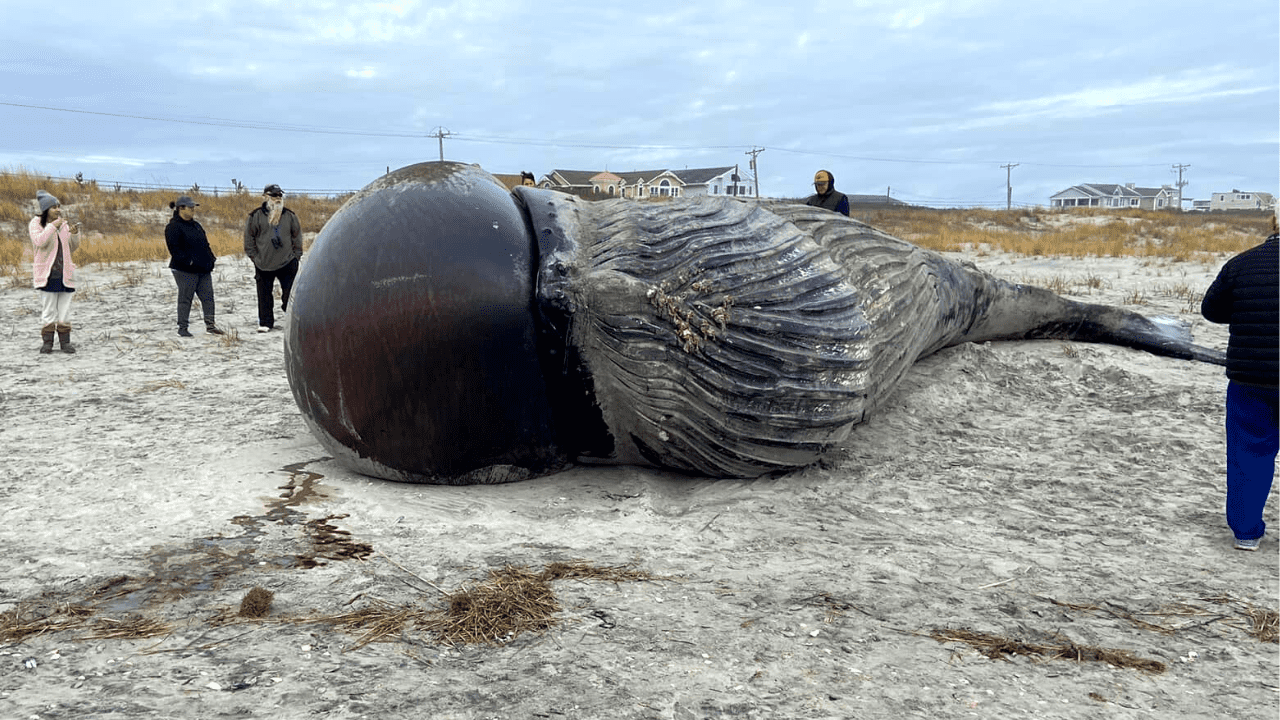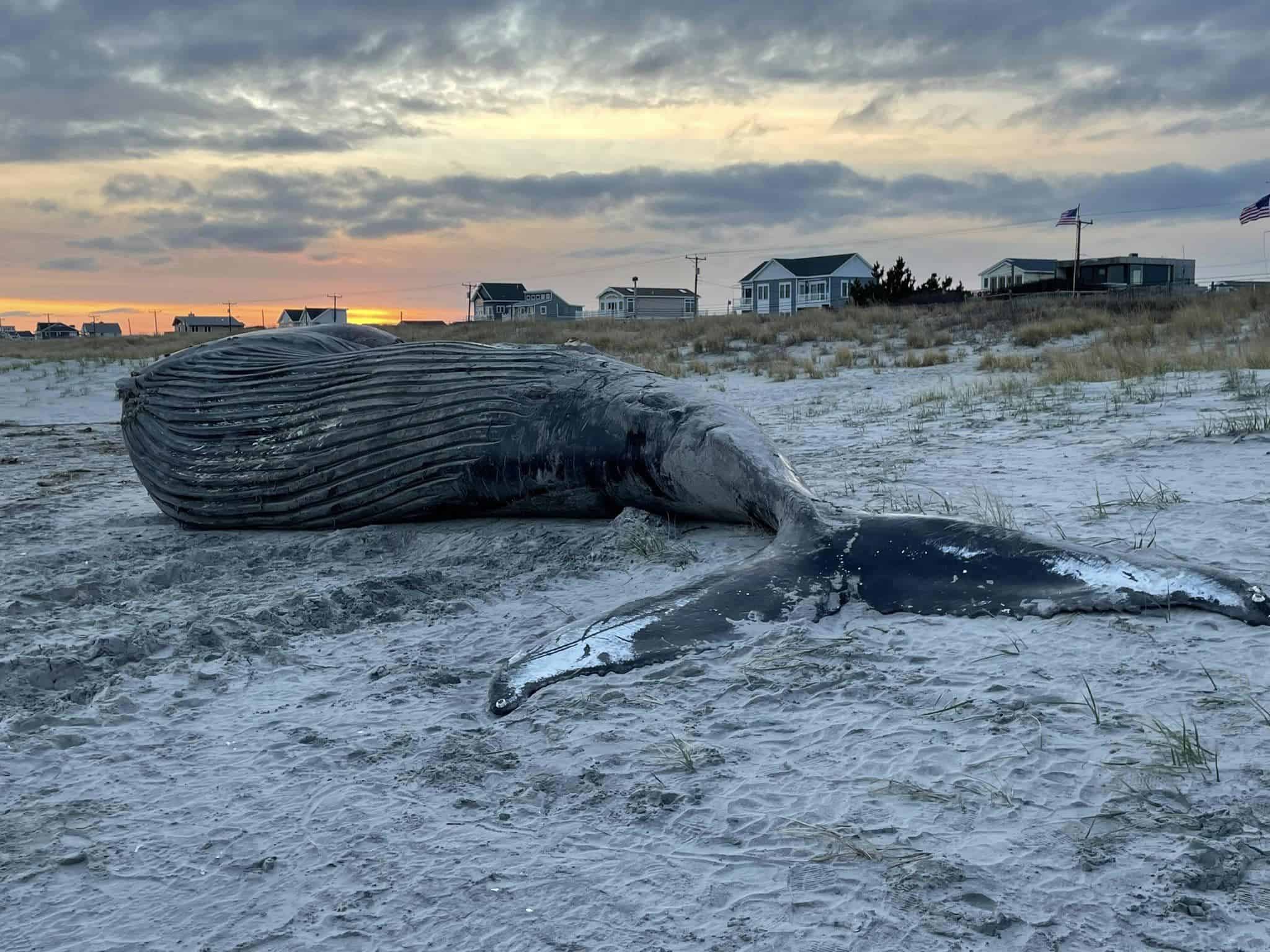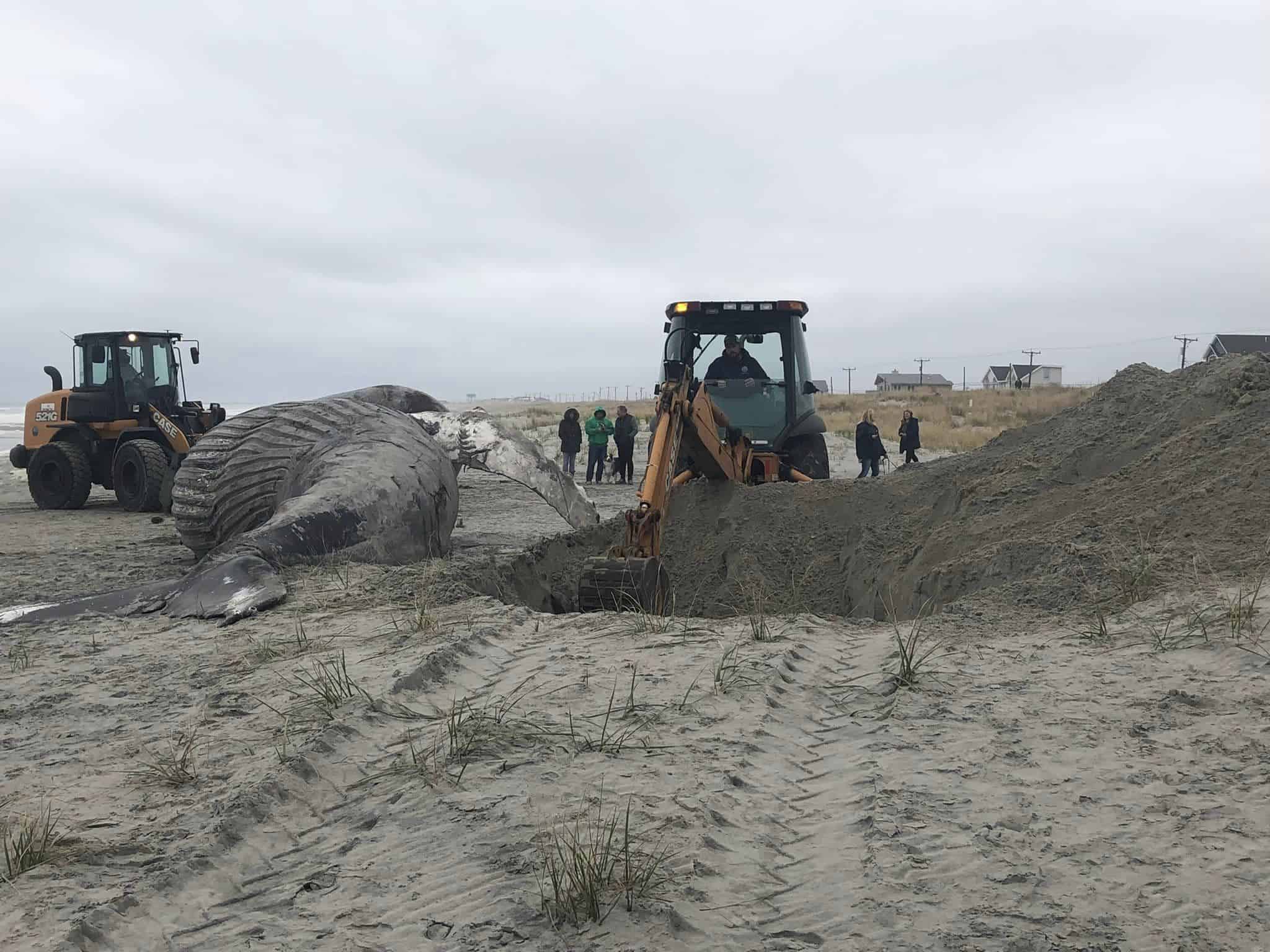Life is never boring in the state of New Jersey, especially when you live ‘down’ the shore.
On Saturday morning, residents of Strathmere woke up with a foul smell coming off their beach.
Upper Township was called to the scene where it was revealed that a 30-foot humpback whale had passed away and landed on the waterfront.

Massive Whale Washes Up On New Jersey Beach
The Strathmere Improvement Association (SIA) uploaded a few photos on Facebook showing the massive mammal.
Humpback whales are very common in our parts of the world. They usually feed in polar waters before moving down south to tropical or subtropical waters to breed and give birth.
Since New Jersey falls in between there, many whales make our waters a stop to feed. Even though they may be big, they eat smaller prey such as krill and small fish. Interestingly they use bubbles to help confuse their prey and when they move near they swim up and catch them.
Life for whales in our area wasn’t always so glamorous. Starting in the late 1670s, Town Bank, which is just North of Cape May, was a big whaling town.
On land, there would be watching towers and when a whale was near, a crew of up to six would don a boat and try to harpoon it.

Whale bones were used to make canes, umbrellas, and carriage springs, the oil was used to light street lamps and even lighthouses.
The biggest use of the whale was its blubber which was used in everything from cosmetics to soap.
To make these products manufacturers would heat up the blubber so that the oils would come out. According to Encyclopædia Britannica, one whale could yield 50 tons of oil.
By the 1960s the humpback whale fell down into the low thousands and they quickly became illegal to hunt. This conservation was able to bring the humpback whale population back and out of the threat of extinction.
There are countries such as Norway and Japan that still catch humpback whales and eat them but it’s not as common.
The whale that washed up in Strathmere was reported to the Marine Mammal Stranding Center who was on the scene by the afternoon.

After their exam, Upper Township came and dug a hole to place the humpback whale in. By the afternoon there was no trace of the whale left on the beach.
Marine Mammal Stranding Center hasn’t revealed the cause of death yet but we hope to get this information later on this week.
Photos by the Strathmere Improvement Association (SIA) and Andrew G. Busch Sr.
Check out these other Wildwood videos and articles.
